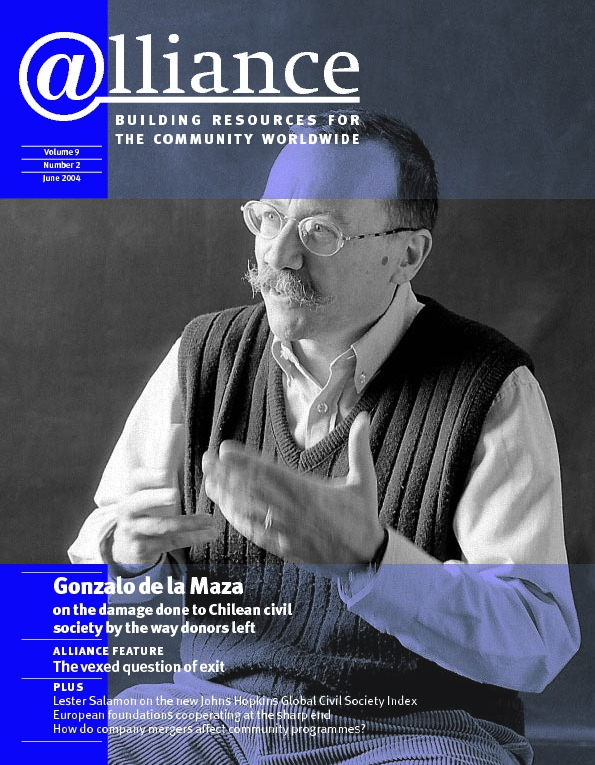SAGA (the Southern African Grantmakers’ Association) – in collaboration with the UK Department for International Development – Southern Africa (DFID-SA) and the Swedish International Development Cooperation Agency (SIDA) – has announced the formation of a new regional funding and policy resource, provisionally called the Southern African Trust.
The new Trust, to be established in the second half of 2004, will aim to reduce poverty and inequality in Southern Africa by strengthening the voice of poor people in public policy processes. It will support policy innovation, collaboration and learning which connects work on pro-poor economic and social development throughout the region.
SAGA, DFID and SIDA are acting as co-facilitators for the launch of the Trust (through a Joint Steering Committee made up of representatives from all three organizations). However, once established the Trust will be an independent entity.
According to its founders, this initiative is a response to the current regional context in which both governments and regional organizations (such as the African Union, NEPAD and SADC) are showing high levels of formal commitment to poverty reduction and the Millennium Development Goals (MDGs). It is now widely acknowledged that reducing poverty is a key requirement for the consolidation of democracy in the region.
To realize the MDGs, most governments in Southern Africa are engaged in the development and implementation of Poverty Reduction Strategy Papers (PRSPs). Policies to promote growth, good governance, and social and economic justice are central to these poverty reduction agendas. But to be effective, argue the Trust’s founders, many of these policies require more integrated regional approaches as well as enhanced engagement by civil society and the private sector. The Trust will work particularly to ensure that the voices of the poor are taken into account in both the design and the implementation of public policy.
Governed by eminent Southern Africans drawn from a broad spectrum of civil society Barry: so are you defining civil society to include business? You could say ‘a broad spectrum of society’ but then civil society apart from faith-based institutions aren’t included in the bracket? (including business, labour, faith-based organizations, and academic institutions), the Trust will provide funding and institutional support in the following focus areas:
· improving the capacity of civil society to engage and influence public policy on poverty and inequality reduction;
· strengthening dialogue and engagement between civil society, the state and the private sector for pro-poor change;
· advancing aspects of the poverty reduction agenda identified by poor and marginalized constituencies;
· promoting an enabling environment and strengthening the infrastructure of civil society to play a more effective role in influencing poverty reduction.
The Trust will operate through two linked mechanisms. The Regional Public Policy Learning Facility will bring together a wide range of stakeholders to promote dialogue on public policy issues. It will also commission relevant research and analysis. The Grantmaking Facility will give support to networks, alliances and activities that contribute to achieving the Trust’s goals. In the work of both, priority will be given to building regional civil society linkages and a regional anti-poverty agenda.
DFID will provide up to £10 million towards the work of the Trust over its first five years of operation, and SIDA has also committed financial support. Other donors and the private sector are being invited to contribute, to secure the sustainability of the Trust as a Southern African resource into the future.
Barry Smith is Regional Director, Southern Africa, The Synergos Institute. He can be contacted at bsmith@synergos.org.za
For more information contact Pinky Mashigo at pinkyabm@netactive.co.za or see the SAGA website at http://www.donors.org.za






Comments (0)